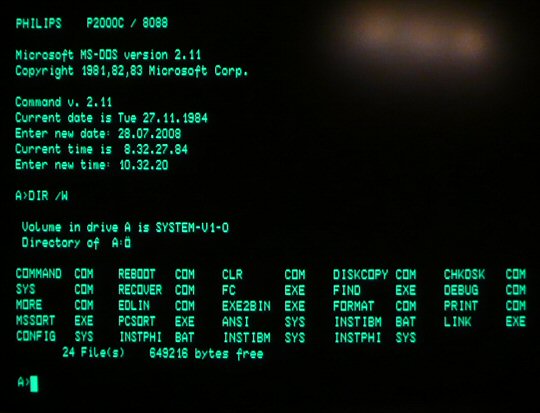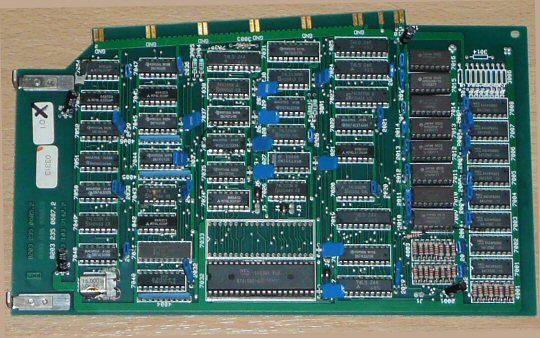|
A portable CP/M computer, but also a MS-DOS PC
In the year 1982 Philips entered the portable market with the Philips P2000C.

This machine was available with a Z80 running with 4 MHz and with 64KB RAM - CP/M 2.2 capable, but also with an optional "CoPower" cpu card - then MS-DOS 2.11 capable, started with a small CP/M program named MSBOOT:

Booted MS-DOS after pressing "Return":

The CoPower-Card was an optional card equipped with an Intel 8088 and a maximum of 512KB RAM (RAM was also usable with a CP/M RAM-Disk):

Here are the 2 floppy disk image files (TeleDisk format):
CoPower MS-DOS 2.11 disk image
CoPower CP/M disk image (e.g. with a RAM-disk program)
Initially the two disk drives were single sided TEAC FD55-A with 40 tracks and have 160 KB capacity each one (=Philips P2010), later Philips took TEAC FD55-F 80 track drives with 640 KB capacity (=Philips P2012).
There was no big commercial success related with that computer, but it's still an interesting machine because it can be moved easily and it's fast enough for serious work.
I've got a P2012 with the CoPower-card and a P2010 with that single-sided drives only and I decided to upgrade the P2010 boot drive to a double-sided one. Unfortunately I didn't found a TEAC FD55-F, so I buyed a TEAC FD55-GFR, which could be set as a double-density drive with 300RPM with a few jumper (see here for detailed info).
You have to open the 4 case screw at the bottom first, then you have to remove the metal strap like shown below:

Then you have to remove the two copper clips which fixes the drives, and last but not least you have to remove a metal plate also, see below:

Now the floppy drives are removable.
See the result after the change, remarkable here: You can use different drive types !:

A: is a 640K drive, B: a 160K drive, configurable with the CP/M system utility named CONFIG.COM (you have to add a new drive table).
Look for the manuals at the electrickery site ...
|

